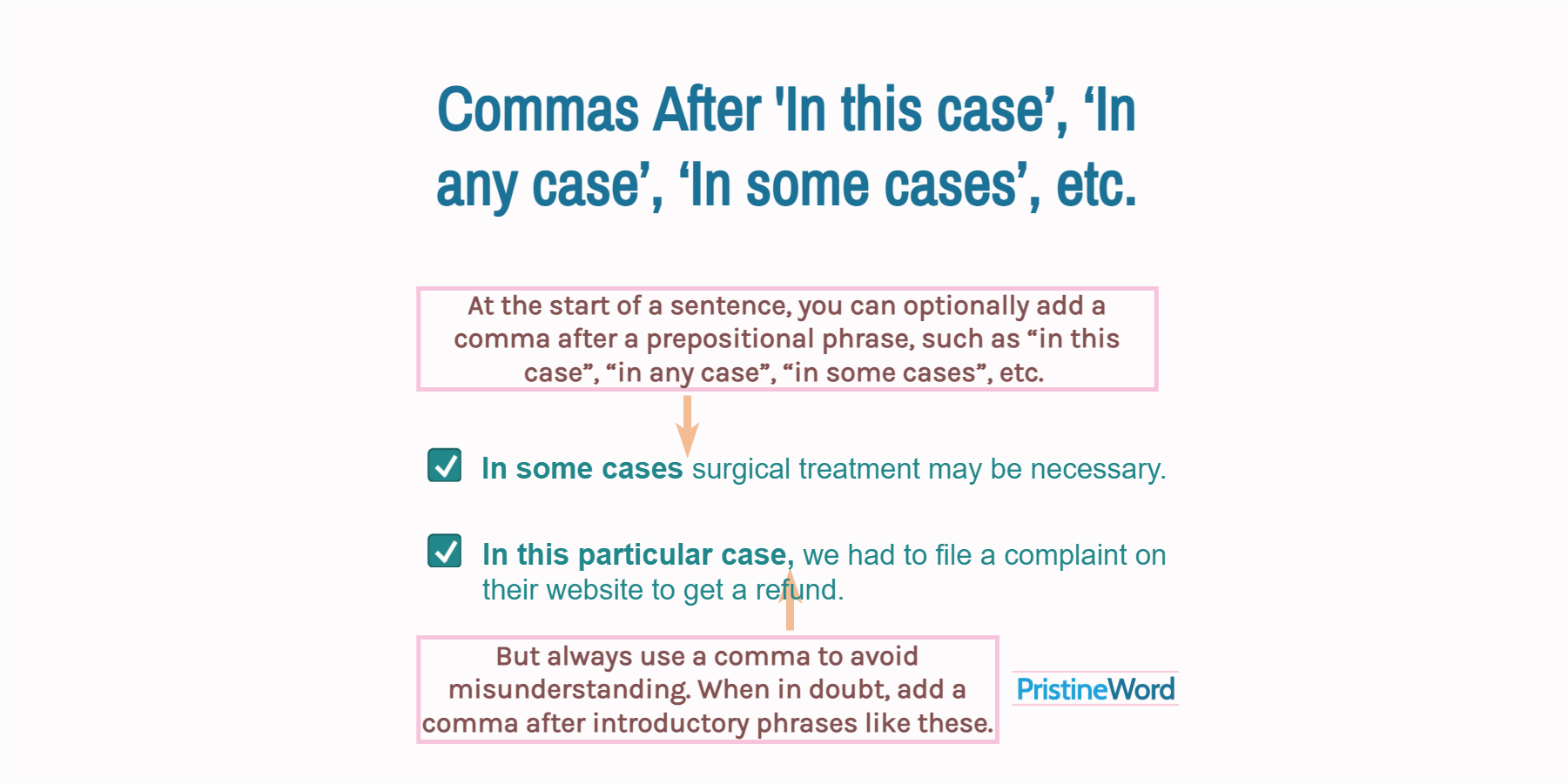At the start of a sentence, you can optionally add a comma after a prepositional phrase, such as “in this case”, “in any case”, “in some cases”, “in a large number of cases”, etc.
At the start of a sentence, you can optionally add a comma after a prepositional phrase, such as “in this case”, “in any case”, “in some cases”, “in a large number of cases”, etc.
In some cases surgical treatment may be necessary.
In any case, we need to find lasting solutions to this problem.
But always use a comma to avoid misunderstanding. When in doubt, add a comma after introductory phrases like these.
In this particular case, we had to file a complaint on their website to get a refund.
Contents
1. “In this case”, “In any case”, etc. as Introductory Phrases
When using expressions such as “in any case”, “in such a case”, “in a number of cases”, etc. at the beginning of a sentence, the comma is generally optional.
In this case the keywords are transparency and integrity.
In this particular case, we should try a different approach.
When in doubt, place a comma after these expressions in the front position.
In any case, I would like to say a few words about the non-proliferation and disarmament policy.
The longer the introductory phrase, the more likely you will add a comma after it.
In a large number of cases, infidelity results in very complex and expensive divorce proceedings.
The comma is also useful to prevent ambiguity or misunderstanding when reading a long, complicated sentence.
In such a case, following a low calorie diet, being active, limiting sedentary activities, and taking corrective action when weight is regained is a must.
Follow the same comma policy with phrases like "in this situation", "in some situations", "in such a situation", etc.
2. In the Middle or at the End of a Sentence
We do not frequently use commas to separate a prepositional phrase, like “in any case”, “in such a case”, “in this particular case”, “in a number of cases”, etc., from the rest of the sentence.
I think that you are wrong in this case.
There are particular structures, however, where a comma before and/or after these expressions may be used; for example, add commas to signal a pause or create a parenthetical feel in mid-sentence.
Following a plant-based diet, in this particular case, may reduce the risk of chronic conditions.
Using a coordinating conjunction to join two independent clauses is another situation where a comma should be included.
Success will require investment in a wide range of cases, but funding is not always the most important element of a successful project.

